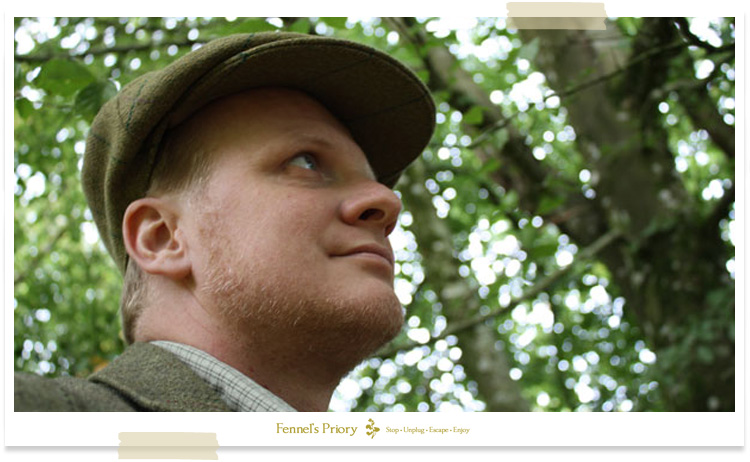First Flight
"Watcha lookin’ at, Fennel, there up in them trees?”
"Nothing much,” I replied. But as soon as I’d spoken the words, I knew that I’d lied. I was attempting to act cool, you see, because my friend, who had asked the question, wasn’t interested in hearing my answer. He was far too eager to get to the pub in time for Happy Hour. I’d responded in a carefree way, and downplayed my rapture at glimpsing the first cuckoo of spring.
Being 18 and in love with the countryside wasn’t especially good for my street-cred.
I wasn’t the life of any party and always preferred a dawn walk through woodland to sleeping off a hangover. So if I had pointed out the bird that had marked the arrival of spring, and commented on how its neck bulged as it called to attract a mate, my friend would have merely passed a derogatory remark. He was interested only in birds of a different type, with altogether different bulges.
Each of us has a defining point in our life that influences the person we later become.
Mine was the ‘Nothing Much’ moment. It was the time when I realised that my love of natural history was not something of which I should be ashamed. As I heard that cuckoo calling, and saw its grey-and-white barred plumage, I decided that I too should find my own voice, and call out to be heard. That was twenty years ago. Like that cuckoo (which had flown an incredible 5,000 miles from Africa) I’ve come a long way since then.
It was the anthropologist Ashley Montagu who said:
"The moments of happiness we enjoy take us by surprise. It is not that we seize them, but that they seize us”.
I was reminded of his words this week when, after a few weeks overseas, I returned home to see the landscape bathed in green. When I’d left home in April, the hedgerows were bare and the only flowers of spring were catkins of hazel and alder, daffodils along the lanes, and marsh marigolds shivering in ditches. The blackthorn blooms had been browned by the April snowfall and snowdrops seemed but a distant memory.
The landscape was dull and uninspiring, and the soil was wet and cold. Spirits weren’t high. Not surprising considering how we’d endured the second wettest year on record. But what’s 52 inches of rain between friends? We’ve got waxed jackets and wellies, right? Sadly, the wet weather left a £1.3bn hole in the UK agricultural economy, so it was hard to be upbeat about ‘good weather for ducks’. In fact, we were allowed to be downright miserable. Needless to say, I wasn’t sad to leave these shores for warmer climes. But when I returned? Wow. I had to stop and catch my breath, and take in the wonderful, sudden, and majestic arrival of spring.
I just stood outside my front door, taking in all the changes that had happened while I’d been away. The horse chestnut trees along the lane were in full leaf, the hedgerows were green and full of flower bud; sycamores were standing proud – almost pompom-like – covered in clusters of yellow-green flowers. Even the oak trees were coming into leaf. The rapeseed in the fields was in early flower, and tulips were erect in the borders of my garden. The roar of the weir next to my house was quieter than before, which enabled me to hear the sweet songs of blackbird, blue tit, chaffinch and wood pigeon (the latter cooing their "I – Love – You – Betty” ballads). But alas, no cuckoo. Not yet. (Although they’re sure to be here by now.) I saw a house martin swoop across the sky, and knew that the swallows and swifts would soon be here. (They tend to arrive a week or two later around here.) And then, just as I was about to turn and head indoors, a fledgling song thrush flapped over the hedge and landed on my lawn. Both parents followed, and proceeded to feed it worms pulled from my rose border. The young bird chirped, happy to be free from its nest and to feel the warmth of the afternoon sun upon its feathers. Hearing and seeing this made me happy, too.
The natural history author W.H. Hudson published a book in 1909 entitled ‘Afoot in England’. It contains one of my all-time favourite natural history quotes, which I will share with you here. He wrote:
"My chief delight was in nature, and when I opened a book it was to find something about nature in it, especially some expression of the feeling produced in us by nature, which was, to me, the most important thing in life”.
With so much life in the air, and such greenery around us, we cannot help but feel more alive now that spring is here. It’s what we live for. So it's time to get outdoors and enjoy it.
This is a sample chapter from The Quiet Fields, Fennel's Journal No. 7
If you like the work of lifestyle and countryside author Fennel Hudson, then please subscribe to Fennel on Friday. You'll receive a blog, video or podcast sent direct to your email inbox in time for the weekend.




